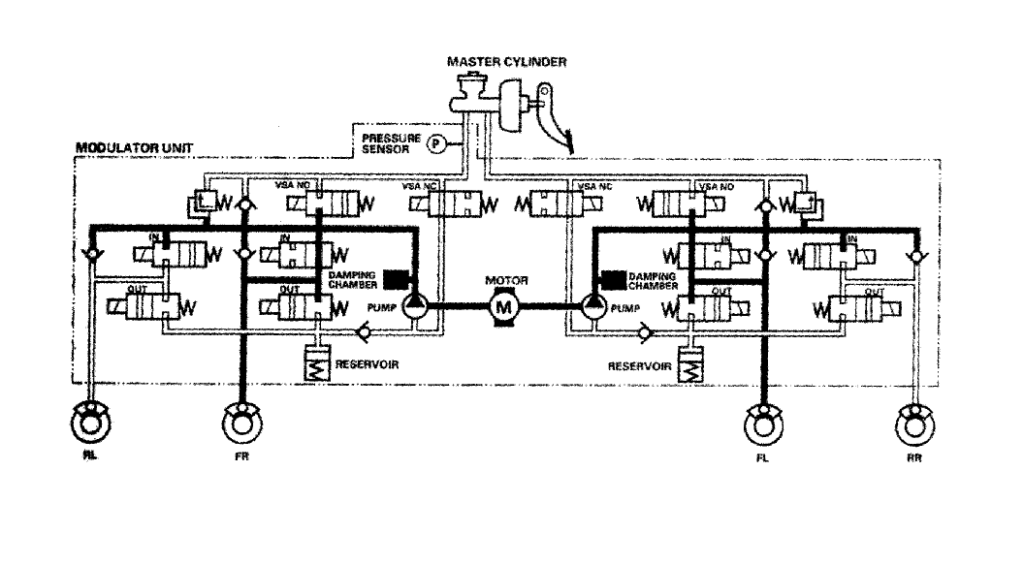 The 2005 Honda Pilot has received more than 200 complaints saying the brakes suddenly applied without the drive pressing the brake pedal and also pulling. This is a definite safety issue that could result in a recall for Honda if the investigators can solve the mystery. Reading the complaints from the NHTSA website it is clear there is a problem.
The 2005 Honda Pilot has received more than 200 complaints saying the brakes suddenly applied without the drive pressing the brake pedal and also pulling. This is a definite safety issue that could result in a recall for Honda if the investigators can solve the mystery. Reading the complaints from the NHTSA website it is clear there is a problem.
“While driving at various speeds (45-75mph), the VSA system engages, locking one wheel for a second or two, and pulling the steering wheel as if in a skid.”
“It felt and sounded similar to the way it stops on icy roads in the winter, but the slowdown was more severe.”
“My 2005 Honda Pilot made a groaning noise around the driver side area, swerved abruptly to the left on its own, while the cruise was set at 56mph.”
“When I would get the car to a safe place and turn off the key. It would no longer be happening, similar to rebooting a computer.”
You only need to watch the first 30 seconds to see it happening:
Most of these incidents happen on vehicles with more than 50,000 mile and four years on the roads. No crashes or fatalities have been reported, but is just a matter of time.
Technical Analysis
Most technicians report all of the sensors like the wheel speed, steering angle, yaw and accelerometers are in working order. It just goes “crazy” at times. No codes are stored and the system usually is operation after the key is cycled.
NHTSA has focused their investigation on the “Brake Assist” function of the VSA system. The Honda VSA control unit learns the current driver’s normal braking characteristics by monitoring the brake pressure sensor and the brake pedal position switch at each stop. Using these inputs and their values, the VSA control unit is able to learn the driver’s normal braking habits, and then determine the difference between a normal stop and a panic stop for the individual driver of the vehicle.
FROM HONDA: If during a panic stop the VSA control unit determines that the brake system pressure increases above a learned threshold in less than a learned amount of time, the VSA control unit engages brake assist. Because the brake system pressure crossed the threshold before the time threshold had expired, the VSA control unit goes into Brake Assist mode.
 Looking at the video and the complaints, it seems the brake system falsely detects a threshold braking situation and applies the brakes by activating the pump and designated valves. This means that the ABS computer could be getting faulty information. It could be caused by a weak ground, interference from other electrical components, mis-calibrated sensor or a bad connector.
Looking at the video and the complaints, it seems the brake system falsely detects a threshold braking situation and applies the brakes by activating the pump and designated valves. This means that the ABS computer could be getting faulty information. It could be caused by a weak ground, interference from other electrical components, mis-calibrated sensor or a bad connector.
The last possibility is the software or algorithms for the hydraulic control module. It could be as simple as a bug in the software that activates the Brake Assist mode. Honda implemented countermeasures in the control and fault detection algorithm in the 2006 Pilot ABS modulators, which are not interchangeable with the 2005. This could mean that the 2005 modulator can not be reprogrammed/reflashed and the only way to change the programing is to replace the ABS module.
The best minds at NHTSA and Honda are struggling with an answer to come up with a fix. But, it is still curious that it is happening to Pilots that have a few miles on the clock. Could this be a preview for more vehicles with aging ABS and stability control systems? Could the ravages of bad grounds, loose connectors and failing components cause an epidemic of crashes and recalls? What is your opinion? Leave a comment below.
Comments are closed.